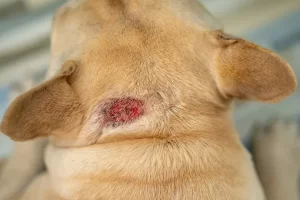
Image Credit: This Image Was Taken From - www.menshealth.com
Can You Get Food Poisoning from Coffee? Turns out coffee is a common source of foodborne illness, most often due to contaminated milk.
My mom used to take me to the train station, and zoo to see the animals and play with other kids during the Christmas holidays when I was young, and every time it was cold she would buy me coffee; I always remember that.
As I grew up I found out it wasn’t just me who loved coffee and I found out that coffee is one of the most consumed beverages in the world.
But I mean, like with anything you put inside you there are certain things to consider to avoid harm and that.
Coffee beans are harmless but problems can occur during storage, preparation, or during brewing.
Let me briefly explain something people need to know, In case the coffee grounds or beans are placed in a damp or warm area – what will happen – mold or bacteria will grow on it.
When you prepare coffee and use rusty utensils, it could also bring germs to your cup which could give you some illness.
That’s why the cleanliness and dryness of the coffee and the tools you use are important for your preparation.
We might be always to blame to the extreme without knowing the fault can also be from the company that produced it.
And the company that produces coffee also has a part to play as one of the things that could lead to coffee being poisoned.
Of course, they can disrupt manufacturing or storage procedures and get contaminated by chemicals, mold, insects, and others.
Always make sure you buy coffee from the right brands and even from shops.
Here’s a little tip for those who are brewing; always make sure they wash their water and brewing equipment well.
Some of the components in coffee can go rancid fast and if the coffee dregs are not refrigerated then you can imagine the end product is not a pretty sight.
When you take coffee that’s gone bad it might not taste good or you’ll get stomach upsets.
If someone tries to poison you even by putting poison in your coffee it’s also deadly.
Especially important to avoid falling asleep and avoid accepting drinks in areas where such a gesture is not safe at all times.
Eating food washed in such water could trigger health problems like stomachache or more.
Get checked by a doctor when you feel something is not right this can save your life.
These safety tips will help you, the consumer to consume coffee without increasing the risk to your health.
Disclaimer Notice: This content goes through a review by the CEO of pharmafoodhealth.com – a professional medical lab scientist before publication.
Can You Get Food Poisoning from Coffee?

Yes, but rarely. The dangers are rarely from the coffee but from how it’s kept, prepared or what’s in it.
You and I know that while coffee is a part of the daily routine of millions, not everyone drinks it as often as we both do.
Sure it gives energy and comfort but at the same time, the nozzle can cause food poisoning.
Can Coffee Cause Foodborne Illness?
Foodborne illness worsens when pathogenic bacteria, viruses or Paramecium invade either food or drinks.
That said, certain aspects turn coffee into a hazard.
But it’s not the coffee most of the time that’s the threat, no.
What’s important is how it’s treated and prepared before brewing and how it’s stored.
What Can Contaminate Coffee?
The most common ways coffee can cause food poisoning are:
- Improper Storage: Coffee beans that are not stored properly—exposed to moisture or humidity—can develop mold. Mold can produce toxins that can cause foodborne illness when consumed.
- Contamination During Brewing: If coffee-making equipment isn’t cleaned properly, bacteria from old coffee oils or residues can contaminate it. That’s why cleaning coffee makers regularly is important.
- The Additives: Coffee creamers, milk or syrups are more likely to be contaminated than the coffee itself. These can expire or go bad and increase the chances of food poisoning.
So while coffee isn’t the primary cause of foodborne illness, these other factors can make it risky.
Can You Get Food Poisoning from Coffee Creamer?
Few would think so but creamers are more likely to be the cause of food poisoning than the coffee itself.
But more specifically, dairy-based creamers are not shelf-stable and require proper storage.
The creamers can become a breeding ground for bacteria if heated to the wrong temperature or if it’s expired.
Let me be direct, you can be poisoned by bad creamer as you can with bad milk.
Symptoms include abdominal pain, vomiting, nausea, and sometimes diarrhea.
How to Avoid Food Poisoning from Coffee Creamer
- Refrigerate creamers. Dairy ones especially.
- Check expiration dates. Only use creamers within their expiration time.
- Please don’t leave them out too long. Especially on warm days or in hot coffee, expired creamer can be a big risk.
Be careful with your creamers and you won’t get food poisoning.
Can You Get Food Poisoning from Iced Coffee?
Yes, iced coffee can also get you food poisoning if left at room temperature for some time.
They grow when cold coffee is not stored properly; just like every cold drink.
If you prepare iced coffee and share it with others throughout the day, bacteria can grow.
Diet iced coffee should always be stored in the fridge so it won’t become a breeding ground for bacteria.
How to Store Iced Coffee
To prevent bacterial growth in iced coffee:
- Keep it cold. If you’re not going to drink iced coffee immediately, store it in the fridge.
- Don’t extract it and leave it at room temperature. Hot coffee can be left uncovered for a while but iced coffee should not be left at room temperature for more than 2 hours.
Using the above tips you can be sure that your iced coffee is safe to drink and doesn’t have bacteria that causes food poisoning.
Is Coffee a Food Poisoning Risk?
Many might be surprised that a cup of coffee isn’t a direct food poisoning culprit for most people.
But it’s important to note the risks and avoid them if possible.
The main risk is improper storage, bacterial-infected tools, or expired products.
As long as the coffee is brewed just before serving, stored properly, and made with clean utensils, the risks are low.
In this case, Malter and his friends are living the reality that only when these factors are not controlled, problems arise.
To avoid food poisoning from coffee:
- Have clean brewing equipment for your coffee.
- All your additives like milk or creamer used in coffee are fresh and refrigerated.
- Dispose of any coffee that shows signs of contamination like stale smell or different taste.
How Improper Coffee Storage Can Lead to Food Poisoning

Coffee beans need to be stored properly to avoid mold.
The mold makes the beans go bad and consuming bad coffee will make you sick.
Storing Coffee Beans Safely
To store your coffee beans:
- Seal them and store them in cool and dry places.
- Avoid humidity. Moisture breeds mold.
- Store beans in airtight containers to avoid external contamination.
Another risk is brewed coffee stored improperly like exposure to air.
When brewed coffee is left for hours, bacteria grow fast and cause food poisoning.
Make it a habit to store your leftover coffee in the fridge to not compromise the product.
How Long Does Food Poisoning Last?
Symptoms of coffee food poisoning usually last for 24 to 48 hours depending on the severity.
Some of the signs are nausea, vomiting, running tummy, and stomach aches.
This is especially true if you are very sick, have a high fever, are dehydrated, or have bloody diarrhea then you should see a doctor.
Food Poisoning Symptoms
Food poisoning symptoms can be recognized early to prevent further complications. The major symptoms include:
- Nausea and vomiting
- Diarrhea
- Stomach pain or cramps
- Fever (in some cases)
- Fatigue or weakness
Severe Symptoms to Watch Out For
See a doctor immediately if you experience:
- Dehydration (dry mouth, excessive thirst, dizziness)
- High fever
- Blood in your stool or vomit
If food poisoning symptoms last more than 48 hours or worsen, contact a healthcare provider.
Will Expired Coffee Make You Sick?
Old coffee can still be consumed and is safe to do so although the taste will not be good.
But when coffee expires, it becomes risky if not stored properly.
How to Handle Expired Coffee:
- Check the packaging. Make sure the coffee has not come in contact with humidity or moisture.
- Evaluate the flavor. So long as there’s no mold or other contamination factor, then expired coffee may have no taste but won’t make you sick.
That’s even more dangerous than having expired coffee as you might add expired milk, creamers, etc.
You should also make it a habit to use products within the specified time limit and if none is specified then always check the expiry date to not use expired items.
You Accidentally Drank Old Coffee with Milk? Here’s What Happens
At some point in the day, we drink coffee with milk and end up drinking it when it has gone cold.
It’s even worse when the milk has gone bad.
Drinking coffee that has gone bad with milk will likely give you some of the symptoms like diarrhea, nausea, and stomach ache.
What to do to Avoid Food Poisoning When Drinking Coffee with Milk
Do:
- Check the expiration dates on the milk or creamer using their labels.
- Don’t leave milk and creamers at room temperature for long.
- Don’t drink any drinks with cream-based products if they have been left standing.
Can Old Coffee Give You Diarrhea?
As separate, coffee doesn’t give you diarrhea.
But with milk or the latter’s use of a bad creamer, it becomes a diarrhea culprit.
Coffee brewed for a long time with bad milk or creamers is food poisoning waiting to happen.
Drinking coffee after the dairy products used to make the coffee have gone bad will give you an upset stomach with symptoms such as; Diarrhea, stomach ache, and nausea.
How to Treat Food Poisoning from Coffee
Any poisoning from coffee or food will take 24 to 48 hours to clear off.
Here’s how to take care of yourself:
- Hydrate. Whatever kind it may be, plenty of water is the best for you.
- Rest and relax. If your body is tired don’t exert it; keep it relaxed.
- What to eat – Eat light, bland foods like toast or crackers if you can eat.
But if symptoms persist for 48 hours or more or worsen, see a doctor to minimize complications.
Conclusion
So, Can You Get Food Poisoning from Coffee? Yes.
Coffee itself can cause food poisoning even if it’s not a common idea to hear from people, well I guess.
Contamination happens because of handling, storage, or exhaustion of raw materials like milk or creamer.
To lower your risk, listen to how your coffee is stored, how it’s brewed, and that your coffee equipment is clean.
Check also the expiration dates of creamers, milk, and syrups; store the beans in a cool and dry place.
As safe and enjoyable as it is, there’s no reason why you can’t brew it the way you want.
FAQs
Can old coffee give you food poisoning?
Drinking old coffee, especially if sitting out at room temperature for hours, can lead to food poisoning.
Bacteria or mold can grow in the coffee if it’s not stored properly.
The coffee itself isn’t harmful but if it’s been sitting out for hours or days it can give you a stomach ache, nausea, or diarrhea from bacteria like E. coli or Salmonella.
What’s the most common cause of food poisoning from coffee?
The most common cause of food poisoning from coffee is bacteria or mold growth.
This happens when coffee is left at room temperature for too long.
The warm and moist environment is a breeding ground for bacteria.
If coffee is left at this temperature for too long without refrigeration it can give you stomach issues when consumed.
How do I know if my coffee has mold?
Mold can grow on old coffee that’s been stored incorrectly.
To check for mold look for black, green, or white spots on the coffee especially if it’s a leftover brew sitting out.
If the coffee smells musty or sour, it may have mold.
Moldy coffee is not safe to drink and should be thrown away immediately.
What do I do if I get sick after drinking coffee?
Suppose you get sick after drinking coffee stop drinking it and drink water or fluids to stay hydrated.
Eat something bland like crackers or toast to settle your stomach.
If symptoms like vomiting, diarrhea, or fever last more than a day it’s best to see a doctor for possible food poisoning.
Can iced coffee give you food poisoning?
Yes, iced coffee can cause food poisoning if it’s not handled or stored properly.
If iced coffee is left out in warm temperatures for too long bacteria can grow and give you stomach issues.
Store iced coffee in the fridge and consume it quickly.
Is drinking coffee from a cafe safe if it’s been sitting out?
Drinking coffee sitting out at a cafe is not recommended as it may have been exposed to bacteria for too long.
Most cafes keep coffee warm but if it’s been sitting out for a few hours it’s best to avoid it.
Always ask for fresh coffee to be safe.
Can pregnant women get food poisoning from coffee?
Yes, pregnant women can get food poisoning from coffee if it’s contaminated with bacteria or mold.
Pregnant women should drink freshly brewed coffee and avoid coffee sitting out for a while.
This reduces the risk of foodborne illnesses that can harm the mother and the baby.
Don’t forget to check some other helpful health content on our blog for more.
REFERENCES:
- https://iwaspoisoned.com/product/coffee
- https://www.quora.com/Can-you-get-food-poisoning-from-bought-coffee-e-g-if-the-coffee-machine-wasnt-clean
- https://cartwrightlaw.com/can-coffee-cause-food-poisoning
- https://keepfoodsafe.org/blog
I’m Edidiong Ekpo, a recommended and experienced SEO content writer.
I have been dedicated to writing well-researched health articles to educate the general public in rural and urban areas, with tips, suggestions, and advice on health challenges.
All of my content goes through a review by the CEO of pharmafoodhealth.com – a professional medical lab scientist before publication.





